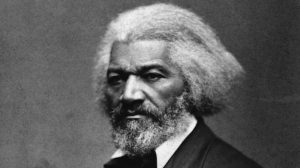


In her transformative Bourgeois Era trilogy, economist Deirdre McCloskey challenged our popular theories about the causes of our newfound economic prosperity, arguing that it sprung not from new systems, tools, or materials, but rather the ideas, virtues, and rhetoric behind them.
“The Great Enrichment, in short, came out of a novel, pro-bourgeois, and anti-statist rhetoric that enriched the world,” she writes. “It is, as Adam Smith said, ‘allowing every man [and woman, dear] to pursue his own interest his own way, upon the liberal plan of equality, liberty, and justice.’”
Now, in a new paper, “How Growth Happens,” McCloskey aims to summarize and distill “the core economics and economic history” from that same trilogy, while adding some new ideas and rhetorical upgrades along the way.
Qualifying the 16-page paper as still in “draft” status,” McCloskey puts things a bit more simply. “The explanation of the Great Enrichment is people,” she writes, and “in particular, it is ideas that people have mercially tested betterment that matter.”
Much of this aligns rather well with the growing evidence we’ve seen about population growth within a context of political and economic freedom, pointing to the ever-surprising capacity for creative servicethat’s bound up in the human person. Whether observing innovations in agriculture, antibiotics, running water, universal puters, containerization, or window screens, we see mon thread of the unexpected and spontaneous, beginning with the individual but often connecting to the broader munity.
It’s why McCloskey prefers the term “innovism” to “capitalism”; it gets closer to the ultimate source of abundance:
The Great Enrichment depended on the less famous but crucial multitudes of free lunches prepared by the alert worker and the liberated shopkeeper rushing about, each with her own little project for profit and pleasure. Sometimes, unexpectedly, the little projects became big projects, such as John Mackey’s one Whole Foods store in Austin Texas, resulting in 479 stores in the U.S. and the U.K., or Jim Walton’s one Walmart in Bentonville, Arkansas resulting in 11,718 stores worldwide.
Letting people have a go to implement such ideas mercially tested betterment is the crux. es, in turn, from liberalism, Adam Smith’s “obvious and simple system of natural liberty,” “the liberal plan of [social equality, [economic] liberty, and [legal] justice.” Liberalism permitted, encouraged, honored an ideology of “innovism”—a word preferable to the highly misleading word of “capitalism,” with its erroneous suggestion that the modern world was and is initiated by piling up bricks and bachelor’s degrees.
Though the more typical focal points of economists and economic historians are still important to that grander story—“property rights, canals, empire, patents”—McCloskey notes that these “are not (necessarily) initiatingcauses,” and thus, we’d do well to expand our thinking around the ultimate sources.
We need the right systems, tools, and materials, but we also need to put first things first. From the standpoint of academia and intellectual exploration, this means paying closer attention to the connections between economics, ethics, human anthropology, and—in our case—theology, which is precisely why organizations like the Acton Institute exist. From the standpoint of economic planning and policymaking, it involves pursuing a greater humility and gaining a deeper appreciation about plexity about the human person and a recognition of those corresponding sources of truth and meaning.
Discerning the places from where our prosperity has actually sprung is essential for learning how to steward and not squander our new economic order.
“What matters is human creativity liberated by liberalism,” McCloskey concludes. “Innovism, not tricky proposals for utilitarian nudging, should be the focus of economics. Economics should e ‘humanomics,’ that is, economics with the philosophy, history, literature left in…We need to honor scientifically, both in our hypotheses and our scientific practice, the liberal world of human creation.”
Image:Pieter Brueghel the Elder, The Dutch Proverbs, 1526 (Public Domain)









